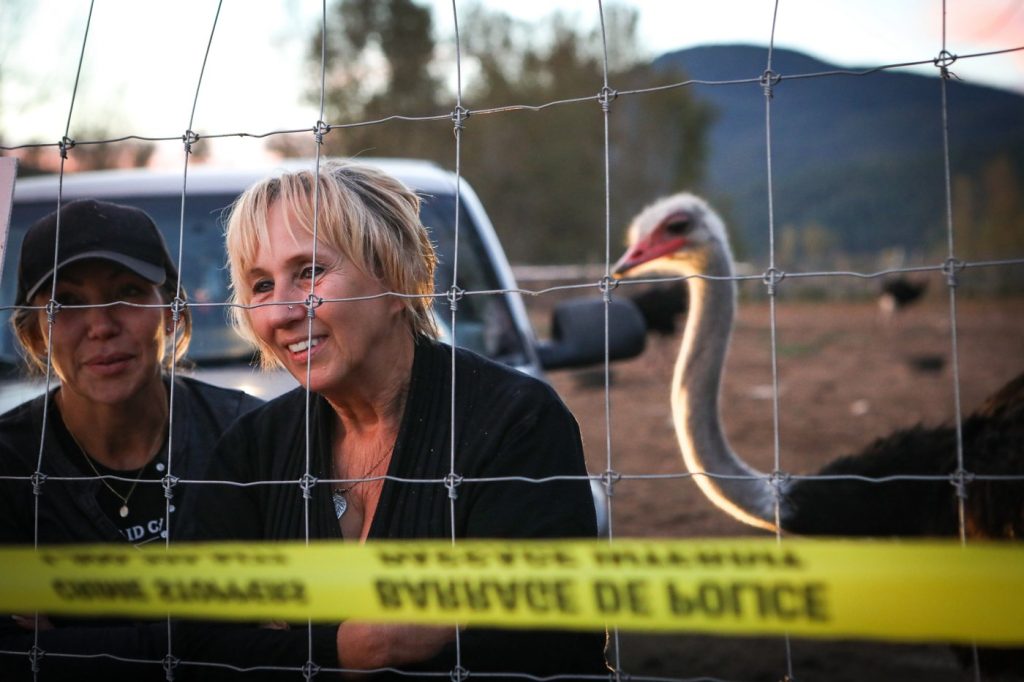EDGEWOOD, BRITISH COLUMBIA, CANADA – Universal Ostrich Farms, located in Edgewood, B.C., has been embroiled in a lengthy legal battle lasting over ten months against a cull order issued by the Canadian Food Inspection Agency (CFIA). This order threatens the lives of hundreds of ostriches on the farm, primarily due to an outbreak of H5N1 avian influenza confirmed in late December 2024.
The situation began to escalate in early December 2024 when the farmers reported “flu-like” symptoms among their ostriches, resulting in 25 to 30 deaths over a three-week period. On December 28, the CFIA became involved after an anonymous tip about the fatalities resulted in an immediate quarantine of the farm. By December 31, officials confirmed H5N1 in samples from two carcasses and issued a cull order that mandated the disposal of all infected birds by February 1.
Facing the seriousness of the situation, Universal Ostrich Farms applied for an exemption to the cull, citing the birds' “rare and valuable genetics.” However, their request was denied by the CFIA on January 10, 2025, shortly after the last reported death on January 15, culminating in a total loss of 69 ostriches.
The Federal Court intervened on January 31, granting a stay of the cull to allow judicial review of the farm's application. However, on May 13, the farm's judicial review application was rejected, with a judge ruling that the CFIA's decisions were "reasonable" and "procedurally fair." These developments ignited public support, leading to an event termed “Ostrich Fest” from May 16 to 18, where hundreds gathered to protest the cull.
On May 23, U.S. Health Secretary Robert F. Kennedy Jr. expressed solidarity by writing to the CFIA, suggesting the ostriches could be valuable for research rather than culled. Following this, an offer made by Dr. Mehmet Oz to relocate the birds to his ranch in Florida was declined by the farm. Amid the ongoing struggle, on June 20, the Federal Court of Appeal granted another stay of the cull order pending further appeal.
Despite continued appeals, on August 21, the Federal Court of Appeal dismissed the farm's challenge, but by September 6, they were granted another stay, further postponing the cull. Nonetheless, on September 12, the court ruled that the cull must proceed, asserting that the farm had not presented a sufficiently arguable case for their appeal.
The situation escalated dramatically when, on September 22, CFIA and RCMP officials prepared to implement the cull. The day after, Karen Espersen and her daughter, Katie Pasitney, co-owners of the farm, were arrested for refusing to vacate the ostrich pen but were released shortly thereafter. As tensions grew, the Supreme Court of Canada intervened on September 24, issuing an interim stay on the cull while deliberating whether to hear a final appeal.
Investigations were prompted in late September regarding threats of violence against those assisting the CFIA, adding to the conflict surrounding the farm. On October 4, the CFIA reported that one ostrich had died while under their care, further complicating the situation. The public continues to await the Supreme Court's decision, scheduled for November 6, regarding whether to hear the farm's appeal against the cull order.
This ongoing legal battle reveals the complexities of agricultural disease management and the impassioned efforts of farmers to protect their valuable livestock amid significant governmental decisions that could lead to their destruction.











